102 start with S start with S




Scanner Data and Price Indexes assesses both the promise and the challenges of using scanner data to produce economic statistics. Three papers present the results of work in progress at statistical agencies in the U.S., United Kingdom, and Canada, including a project at the U.S. Bureau of Labor Statistics to investigate the feasibility of incorporating scanner data into the monthly Consumer Price Index. Other papers demonstrate the enormous potential of using scanner data to test economic theories and estimate the parameters of economic models, and provide solutions for some of the problems that arise when using scanner data, such as dealing with missing data.
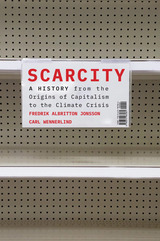
A sweeping intellectual history of the concept of economic scarcity—its development across five hundred years of European thought and its decisive role in fostering the climate crisis.
Modern economics presumes a particular view of scarcity, in which human beings are innately possessed of infinite desires and society must therefore facilitate endless growth and consumption irrespective of nature’s limits. Yet as Fredrik Albritton Jonsson and Carl Wennerlind show, this vision of scarcity is historically novel and was not inevitable even in the age of capitalism. Rather, it reflects the costly triumph of infinite-growth ideologies across centuries of European economic thought—at the expense of traditions that sought to live within nature’s constraints.
The dominant conception of scarcity today holds that, rather than master our desires, humans must master nature to meet those desires. Albritton Jonsson and Wennerlind argue that this idea was developed by thinkers such as Francis Bacon, Samuel Hartlib, Alfred Marshall, and Paul Samuelson, who laid the groundwork for today’s hegemonic politics of growth. Yet proponents of infinite growth have long faced resistance from agrarian radicals, romantic poets, revolutionary socialists, ecofeminists, and others. These critics—including the likes of Gerrard Winstanley, Dorothy Wordsworth, Karl Marx, and Hannah Arendt—embraced conceptions of scarcity in which our desires, rather than nature, must be mastered to achieve the social good. In so doing, they dramatically reenvisioned how humans might interact with both nature and the economy.
Following these conflicts into the twenty-first century, Albritton Jonsson and Wennerlind insist that we need new, sustainable models of economic thinking to address the climate crisis. Scarcity is not only a critique of infinite growth, but also a timely invitation to imagine alternative ways of flourishing on Earth.

No American metropolis has intervened in its housing market quite as aggressively as New York since World War II—and yet none is as burdened by the scarcity, poor quality, uneven distribution, and high cost of its rental housing stock. Why, after half a century of rent control, public housing programs, tax abatement, and land use regulation, is it so difficult for thousands of New Yorkers to find, rent, and maintain decent apartments?
Addressing issues that are hotly debated in the Big Apple and other cities across the nation, Peter Salins and Gerard Mildner analyze New York's policies and assess their largely detrimental effects on housing quality and availability. They show how programs that were instituted for the benefit of both investors and the poor—by directly and indirectly subsidizing housing construction and by capping rents—have instead caused misallocation of housing, exacerbated tensions between tenants and landlords, progressively stifled private investment, and resulted in building deterioration and abandonment.
Scarcity by Design is an object lesson in what governments should not do if they wish to improve housing and maintain communities. It also makes a strong case for a highly controversial solution: arguing from a free-market perspective, Salins and Mildner clearly demonstrate how transition to a fully deregulated and subsidized housing market would alleviate the social and economic woes of New York's tenants. They present deregulation as the essential stimulus of housing production, fair pricing, and good maintenance. The authors' crisply written analysis of New York's housing problems and their proposed solutions will enlighten citizens, city managers, investors, builders, and urban planners, and should spark discussions in academic as well as professional circles.

Clarence Edwin Ayres was the leading American institutionalist economist in the post–World War II era. His innovative theories concerning the causes and significance of technological change provided the philosophical framework for that school of economics called institutionalism. In his recognition that the critical economic issues of the future would be the realization of the full economic potential of industrial society and the development of the third world, he was at least twenty years ahead of his time. In addition, Ayres's influence as an economics teacher at the University of Texas at Austin went well beyond the discipline of economics to students of anthropology, psychology, philosophy, education, and even music and art.
This book constitutes the first major appraisal of the work and influence of C. E. Ayres. The essays are written from a transatlantic as well as a national viewpoint and do not evince anyone ideological bias. As John Kenneth Galbraith says in his Foreword, the essays are not meant as a monument to Ayres; instead, they critique what he thought and did, showing "his range of interests, his diligence, his originality of mind and method."
Contributions to the volume are "Clarence Edwin Ayres: An Intellectual's Portrait" by editors William Breit and William Patton Culbertson, Jr.; "Clarence Ayres's Place in the History of American Economics: An Interim Assessment" by A. W. Coats; "C. E. Ayres on the Industrial Revolution" by R. M. Hartwell; "Clarence Ayres and the Roots of Economic Progress" by S. Herbert Frankel; "Technology and the Price System" by W. W. Rostow; "Limits to Growth: Biospheric or Institutional?" by Joseph J. Spengler; "Science's Feet of Clay" by Gordon Tullock; "Ayres's Views on Moral Relativism" by Alfred F. Chalk; "Methods and Morals in Economics: The Ayres-Knight Discussion" by James M. Buchanan; " Clarence Ayres's Economics and Sociology" by Talcott Parsons; and "Clarence E. Ayres as a University Teacher" by Marion J. Levy, Jr.

Bringing together central themes in this emerging discipline, the editors have assembled important articles that provide a wider context and background against which the economics of science can be evaluated. Roughly one-third of the essays presented here are original papers, and the rest are critical articles previously published in the field. From essays examining economic welfare to the idea of scientists as agents to the digital aspects of higher education,Science Bought and Sold presents a comprehensive overview of the new directions of this expanding area.
Contributors:
Kenneth J. Arrow
Mario Biagioli
William A. Brock
Michel Callon
Partha Dasgupta
Paul A. David
Steven N. Durlauf
Paul Forman
Steve Fuller
D. Wade Hands
Shaun P. Hargreaves Heap
Philip Kitcher
Sharon G. Levin
Richard R. Nelson
David F. Noble
Michael Polanyi
Gary Rhoades
Charles Sanders Peirce
Sheila Slaughter
Paula E. Stephan
Stephen Turner
James R. Wible
John Ziman
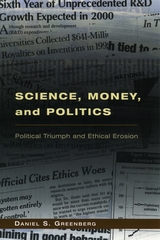


Martin McGuire has written for the specialist and the concerned layman a highly original and valuable contribution to our understanding of the arms race, based upon economic theory in general and the theory of economic duopoly in particular. He calls attention to the fact that when two world powers face each other with massive allocations of resources for arms, and when each regards the other as the major, if not the sole, threat to its own security, the question of accurate information about the strength and intentions of the adversary arises for each side in many and various ways. As a result, this study is a pioneering, analytic effort to approach the value of keeping secrets from or of obtaining information about an enemy.
The author is concerned with such questions as: what is the loss in being only 50 percent confident rather than certain that the adversary doesn’t have more X missiles or missiles of yield W megatons or of accuracy C thousand feet? Should one insist on being 95 percent sure when bargaining for arms control? How can a side compensate for its uncertainty most efficiently? An understanding of these problems can not only increase our security; it may help as well to contain or control the entire two-sided race.

"A very fine piece of work that provides material I have never seen before, is well written, and has undoubtable merits."—William Baumol, C.V. Starr Center for Applied Economics, New York University
"By bringing to the forefront the achievements of French engineer Jules Dupuit, this work changes our view of the history of microeconomics. Secret Origin of Modern Microeconomics is a commentary on our discipline's mythology of origins: it reminds us that, in the construction and maintenance of canonical authority, the recoginition of founding fathers requires simultaneous, often subtle, gestures of exclusion."—Philippe Fontaine, école Normale Supèrieure de Cachan

Ross B. Emmett's selection of Knight's essays is the first to offer a comprehensive picture of the work of this notable social scientist over the span of his career. Included are not only Knight's most influential writings, but also a number of uncollected papers which have not previously been widely accessible. These essays illustrate Knight's views on the central debates regarding economics, social science, ethics, education, and modern liberalism. Volume 1: "What is Truth" in Economics? contains fifteen of Knight's papers up through 1940. Volume 2: Laissez Faire: Pro and Con includes fourteen of Knight's papers from 1940 through 1967, including "Socialism: The Nature of the Problem" and "The Sickness of Liberal Society."
These twenty-nine essays together stand not only as a monument to one of economics' most significant and original thinkers, but will also serve as an invaluable resource for economists, philosophers, and political scientists interested in the development of the western liberal tradition.

Ross B. Emmett's selection of Knight's essays is the first to offer a comprehensive picture of the work of this notable social scientist over the span of his career. Included are not only Knight's most influential writings, but also a number of uncollected papers which have not previously been widely accessible. These essays illustrate Knight's views on the central debates regarding economics, social science, ethics, education, and modern liberalism. Volume 1: "What is Truth" in Economics? contains fifteen of Knight's papers up through 1940. Volume 2: Laissez Faire: Pro and Con includes fourteen of Knight's papers from 1940 through 1967, including "Socialism: The Nature of the Problem" and "The Sickness of Liberal Society."
These twenty-nine essays together stand not only as a monument to one of economics' most significant and original thinkers, but will also serve as an invaluable resource for economists, philosophers, and political scientists interested in the development of the western liberal tradition.

Miller was perhaps best known for a series of highly influential papers he cowrote in the 1950s and 1960s with fellow Nobel laureate Franco Modigliani that advanced a set of capital structure theorems later dubbed the "M and M propositions." In brief, the M and M propositions state that the actions of investors, firms, and capital markets will cause the market value of a firm to be independent of its capital structure. In other words, a corporation's value depends on its investments in people, ideas, and physical capital goods and not on the mix of bonds, stocks, and other securities used to finance the investments. Four of these papers are reprinted here, together with important later work by Miller in macroeconomics, corporate capital structure, management science, asset pricing, and the economic and regulatory problems of the financial services industry.
Diverse and innovative, the papers in Selected Works of Merton H. Miller will interest students and practitioners of economics, finance, and business, as well as policymakers responsible for market regulation.

Miller was perhaps best known for a series of highly influential papers he cowrote in the 1950s and 1960s with fellow Nobel laureate Franco Modigliani that advanced a set of capital structure theorems later dubbed the "M and M propositions." In brief, the M and M propositions state that the actions of investors, firms, and capital markets will cause the market value of a firm to be independent of its capital structure. In other words, a corporation's value depends on its investments in people, ideas, and physical capital goods and not on the mix of bonds, stocks, and other securities used to finance the investments. Four of these papers are reprinted here, together with important later work by Miller in macroeconomics, corporate capital structure, management science, asset pricing, and the economic and regulatory problems of the financial services industry.
Diverse and innovative, the papers in Selected Works of Merton H. Miller will interest students and practitioners of economics, finance, and business, as well as policymakers responsible for market regulation.


John L. Neufeld offers a comprehensive historical treatment of the economics that shaped electric utilities. Compared with most industries, the organization of the electric utility industry is not—and cannot be—economically efficient. Most industries are kept by law in a state of fair competition, but the capital necessary to start an electric company—generators, transmission and distribution systems, and land and buildings—is so substantial that few companies can enter the market and compete. Therefore, the natural state of the electric utility industry since its inception has been a monopoly subject to government oversight. These characteristics of electric utilities—and electricity’s importance—have created over time sharp political controversies, and changing public policies have dramatically changed the industry’s structure to an extent matched by few other industries. Neufeld outlines the struggles that shaped the industry’s development, and shows how the experience of electric utilities provides insight into the design of economic institutions, including today’s new large-scale markets.

The latest addition to the University of Chicago Press’s Collected Works of F. A. Hayek series, The Sensory Order and Other Writings on the Foundations of Theoretical Psychology pairs the book, originally published in 1952, with additional essays related to The Sensory Order’s key themes, including a student paper from 1920 in which Hayek outlined the basic ideas he fully developed in the 1952 book. Rounding out the volume is an insightful introduction by editor Viktor Vanberg that sketches out the central problems Hayek was grappling with when he wrote The Sensory Order and the influential role this early thinking on theoretical psychology would play over the next six decades of his career. The book also features ample footnotes and citations for further reading, making this an essential contribution to the series.

The phenomenon of female consumption was capitalism’s complement to male production: It created what Merish calls the “Other Protestant Ethic,”a feminine and sentimental counterpart to Max Weber’s ethic of hard work, economic rationality, and self-control. In addition, driven by the culture’s effort to civilize the “cannibalistic” practices of ethnic, class, and national otherness, appropriate female consumerism, marked by taste and refinement, identified certain women and their families as proper citizens of the United States. The public nature of consumption, however, had curiously conflicting effects: While the achievement of cultured material circumstances facilitated women’s civic agency, it also reinforced stereotypes of domestic womanhood.
Sentimental Materialism’s inquiry into middle-class consumption and accompanying ideals of womanhood will appeal to readers in a variety of disciplines, including American studies, cultural studies, feminist theory, and cultural history.


Shadows of Doubt reveals how deeply stereotypes distort our interactions, shape crime, and deform the criminal justice system.
If you’re a robber, how do you choose your victims? As a police officer, how afraid are you of the young man you’re about to arrest? As a judge, do you think the suspect in front of you will show up in court if released from pretrial detention? As a juror, does the defendant seem guilty to you? Your answers may depend on the stereotypes you hold, and the stereotypes you believe others hold. In this provocative, pioneering book, economists Brendan O’Flaherty and Rajiv Sethi explore how stereotypes can shape the ways crimes unfold and how they contaminate the justice system through far more insidious, pervasive, and surprising paths than we have previously imagined.
Crime and punishment occur under extreme uncertainty. Offenders, victims, police officers, judges, and jurors make high-stakes decisions with limited information, under severe time pressure. With compelling stories and extensive data on how people act as they try to commit, prevent, or punish crimes, O’Flaherty and Sethi reveal the extent to which we rely on stereotypes as shortcuts in our decision making. Sometimes it’s simple: Robbers tend to target those they stereotype as being more compliant. Other interactions display a complex and sometimes tragic interplay of assumptions: “If he thinks I’m dangerous, he might shoot. I’ll shoot first.”
Shadows of Doubt shows how deeply stereotypes are implicated in the most controversial criminal justice issues of our time, and how a clearer understanding of their effects can guide us toward a more just society.

In the pages of this intriguing volume, a cure to stagflation seems to be at hand. Martin L. Weitzman, one of America’s leading economic theorists, has hit upon a central feature of our economic life as the cause of this chronic malady: the standard practice of paying workers a fixed wage, regardless of whether a company is doing well or poorly. Weitzman shows in a clear straightforward way that an alternative labor payment system, in which a significant number of firms share profits or revenues with their employees (like the Japanese bonus system), provides immunity against stagflation; an economy of such firms automatically soaks up unemployed labor and resists inflation.
Under the Weitzman system, firms always have an incentive to take on more workers because the additional worker is paid only a fraction or share of the revenue he brings into the firm. General Motors and Eastern Airlines have already taken steps to implement profit and revenue sharing. Here, for the first time, is a lucid explanation and justification of share systems. Eschewing theoretically unsound schemes such as supply-side tax cuts and industrial policy on the one hand and macroeconomic sledgehammer “cures” on the other, The Share Economy provides a powerful and hopeful account of what may become the most important economic innovation of our time.

The historical relationship between capital and labor has evolved in the past few decades. One particularly noteworthy development is the rise of shared capitalism, a system in which workers have become partial owners of their firms and thus, in effect, both employees and stockholders. Profit sharing arrangements and gain-sharing bonuses, which tie compensation directly to a firm’s performance, also reflect this new attitude toward labor.
Shared Capitalism at Work analyzes the effects of this trend on workers and firms. The contributors focus on four main areas: the fraction of firms that participate in shared capitalism programs in the United States and abroad, the factors that enable these firms to overcome classic free rider and risk problems, the effect of shared capitalism on firm performance, and the impact of shared capitalism on worker well-being. This volume provides essential studies for understanding the increasingly important role of shared capitalism in the modern workplace.

An in-depth exploration of digital culture and its dissemination, Sharing offers a counterpoint to the dominant view that file sharing is piracy. Instead, Philippe Aigrain looks at the benefits of file sharing, which allows unknown writers and artists to be appreciated more easily. Concentrating not only on the cultural enrichment caused by widely shared digital media, Sharing also discusses new financing models that would allow works to be shared freely by individuals without aim at profit. Aigrain carefully balances the needs to support and reward creative activity with a suitable respect for the cultural common good and proposes a new interpretation of the digital landscape.
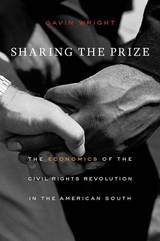
Winner of the Alice Hanson Jones Prize, Economic History Association
A Choice Outstanding Academic Title of the Year
The civil rights movement was also a struggle for economic justice, one that until now has not had its own history. Sharing the Prize demonstrates the significant material gains black southerners made—in improved job opportunities, quality of education, and health care—from the 1960s to the 1970s and beyond. Because black advances did not come at the expense of southern whites, Gavin Wright argues, the civil rights struggle was that rarest of social revolutions: one that benefits both sides.
“Wright argues that government action spurred by the civil-rights movement corrected a misfiring market, generating large economic gains that private companies had been unable to seize on their own.”
—The Economist
“Written…with the care and imagination [Wright] displayed in his superb work on slavery and the southern economy since the Civil War, this excellent economic history offers the best empirical account to date of the effects the civil rights revolution had on southern labor markets, schools, and other important institutions…With much of the nation persuaded that a post-racial age has begun, Wright’s analytical history…takes on fresh urgency.”
—Ira Katznelson, New York Review of Books


Looking specifically at the labor market, Mulligan reveals how the costs of health care under the ACA actually create implicit taxes on individuals, and how increased costs to employers will be passed on to their employees. Mulligan shows how, as a result, millions of workers will find themselves in a situation in which full-time work, adjusted for the expense of health care, will actually pay less than part-time work or even not working at all. Analyzing the incentives—or lack thereof—for people to earn more by working more, Mulligan offers projections on how many hours people will work and how productively they will work, as well as how much they will spend in general. Using the powerful tools of economics, he then illustrates the detrimental consequences on overall employment in the near future.
Drawing on extensive knowledge of the labor market and the economic theories at its foundation, Side Effects and Complications offers a crucial wake-up call about the risks the ACA poses for the economy. Plainly laying out the true costs of the ACA, Mulligan’s grounded and thorough predictions are something that workers and policy makers cannot afford to ignore.
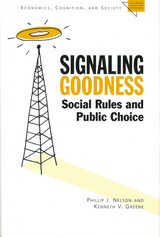
Phillip Nelson and Kenneth Greene are Professors of Economics in the Department of Economics at the State University of New York, Binghamton.

Using successful examples from a range of countries, Anitra Nelson shows how 'eco-collaborative housing' - resident-driven low impact living with shared facilities and activities - can address the great social, economic and sustainability challenges that householders and capitalist societies face today. Sharing living spaces and facilities results in householders having more amenities and opportunities for neighbourly interaction.
Small is Necessary places contemporary models of 'alternative' housing and living at centre stage arguing that they are outward-looking, culturally rich, with low ecological footprints and offer governance techniques for a more equitable and sustainable future.

How do smokers evaluate evidence that smoking harms health? Some evidence suggests that smokers overestimate health risks from smoking. This book challenges this conclusion. The authors find that smokers tend to be overly optimistic about their longevity and future health if they quit later in life.
Older adults' decisions to quit smoking require personal experience with the serious health impacts associated with smoking. Smokers over fifty revise their risk perceptions only after experiencing a major health shock--such as a heart attack. But less serious symptoms, such as shortness of breath, do not cause changes in perceptions. Waiting for such a jolt to occur is imprudent.
The authors show that well-crafted messages about how smoking affects quality of life can greatly affect current perceptions of smoking risks. If smokers are informed of long-term consequences of a disease, and if they are told that quitting can indeed come too late, they are able to evaluate the risks of smoking more accurately, and act accordingly.

Those papers, revised and updated, are collected here. Kenneth J. Arrow provides perspective on education and preference formation, and Jere R. Behrman considers general conceptual and measurement issues in assessing the social benefits of education and policies related to education. These issues are taken up by experts in four fields--health, parenting, the environment, and crime. Themes addressed include measurement issues regarding what we mean by education and its benefits; basic analytical issues in assessing the impact of education on these social benefits using behavioral data; and whether the social benefits of education justify public policy interventions.
Jere R. Behrman is William R. Kenan Jr. Professor of Economics, University of Pennsylvania. Nevzer G. Stacey is Senior Research Analyst, Office of Educational Research, U.S. Department of Education.

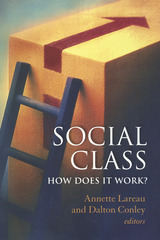
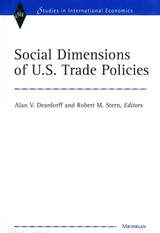
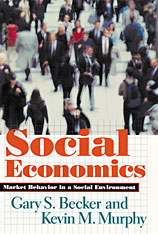
Economists assume that people make choices based on their preferences and their budget constraints. The preferences and values of others play no role in the standard economic model. This feature has been sharply criticized by other social scientists, who believe that the choices people make are also conditioned by social and cultural forces. Economists, meanwhile, are not satisfied with standard sociological and anthropological concepts and explanations because they are not embedded in a testable, analytic framework.
In this book, Gary Becker and Kevin Murphy provide such a framework by including the social environment along with standard goods and services in their utility functions. These extended utility functions provide a way of analyzing how changes in the social environment affect people’s choices and behaviors. More important, they also provide a way of analyzing how the social environment itself is determined by the interactions of individuals.
Using this approach, the authors are able to explain many puzzling phenomena, including patterns of drug use, how love affects marriage patterns, neighborhood segregation, the prices of fine art and other collectibles, the social side of trademarks, the rise and fall of fads and fashions, and the distribution of income and status.

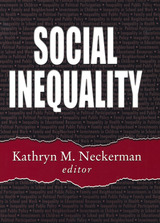


Many of us suspect that Social Security faces eventual bankruptcy. But the government projects its future finances using long outdated methods. Employing a more up-to-date approach, Jagadeesh Gokhale here argues that the program faces insolvency far sooner than previously thought.
To assess Social Security’s fate more accurately under current and alternative policies, Gokhale constructs a detailed simulation of the forces shaping American demographics and the economy to project their future evolution. He then uses this simulation to analyze six prominent Social Security reform packages—two liberal, two centrist, and two conservative—to demonstrate how far they would restore the program’s financial health and which population groups would be helped or hurt in the process.
Arguments over Social Security have raged for decades, but they have taken place in a relative informational vacuum; Social Security provides the necessary bedrock of analysis that will prove vital for anyone with a stake in this important debate.


The sixth stage of an ongoing research project studying the relationship between social security programs and labor force participation, this volume draws on the work of an eminent group of international economists to consider the extent to which differences in labor force participation across countries are determined by the provisions of disability insurance programs. Presented in an easily comparable way, their research covers twelve countries, including Canada, Japan, and the United States, and considers the requirements of disability insurance programs, as well as other pathways to retirement.

In nearly every industrialized country, large aging populations and increased life expectancy have placed enormous pressure on social security programs—and, until recently, the pressure has been compounded by a trend toward retirement at an earlier age. With a larger fraction of the population receiving benefits, in coming decades social security in many countries may have to be reformed in order to remain financially viable.
This volume offers a cross-country analysis of the effects of disability insurance programs on labor force participation by older workers. Drawing on measures of health that are comparable across countries, the authors explore the extent to which differences in the labor force are determined by disability insurance programs and to what extent disability insurance reforms are prompted by the circumstances of a country’s elderly population.


This eighth phase of the International Social Security project, which compares the social security and retirement experiences of twelve developed countries, documents trends in participation and employment and explores reasons for the rising participation rates of older workers. The chapters use a common template for analysis, which facilitates comparison of results across countries. Using within-country natural experiments and cross-country comparisons, the researchers study the impact of improving health and education, changes in the occupation mix, the retirement incentives of social security programs, and the emergence of women in the workplace, on labor markets. The findings suggest that social security reforms and other factors such as the movement of women into the labor force have played an important role in labor force participation trends.
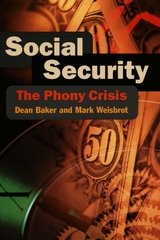
According to the authors of this important new study, the answer to these questions is a resounding no. In Social Security: The Phony Crisis, economists Dean Baker and Mark Weisbrot argue that there is no economic, demographic, or actuarial basis for the widespread belief that the program needs to be fixed.
As the authors emphasize, there is virtually no disagreement about the facts of Social Security's finances, or even the projections for its future. Rather, the Social Security debate has been foundering on misconceptions, confusion, and lack of agreement on the meaning of crucial terms.
The authors also take on related issues: that privatization would help save Social Security, that America has a pressing need to increase its national savings, and that future generations will suffer from the costs—especially for health care—of supporting a growing elderly population.
As New York Times columnist Fred Brock recently wrote, "So-called reform of the Social Security system is looking more and more like a solution in search of a problem." In this accessible and insightful work, Baker and Weisbrot seek to cut through some of the myths and fallacies surrounding this crucial policy issue.
"Dean Baker and Mark Weisbrot have no trouble at all demonstrating that even on highly conservative assumptions about economic growth, the much-forecast insolvency of the Social Security system by about 2030 is most unlikely to happen then, if indeed ever."—The Economist
"The authors challenge basic assumptions with vigor and intelligence. . . . An absolutely relevant and important analysis, presented with force and clarity, that asks, basically, what kind of a nation we really are."—Kirkus Reviews
"Proponents—like George W. Bush—of Social Security privatization . . . typically ignore prospects for a stagnant or falling stock market. In Social Security: The Phony Crisis, [Baker and Weisbrot] show how a falling stock market could place pressure on both future Social Security payments and privatization schemes because earnings from the trust fund could actually fall."—Jeff Madrick, New York Review of Books
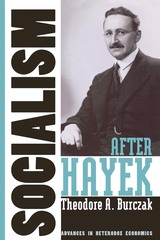
Burczak's version of market socialism is one in which privately owned firms are run democratically by workers, governments engage in ongoing redistribution of wealth to support human development, and markets are otherwise unregulated. Burczak poses this model of "free market socialism" against other models of socialism, especially those developed by John Roemer, Michael Albert, and Robin Hahnel.
"Burczakian socialism = (Hayek + Nussbaum + Sen + Ackerman + Resnick and Wolff) = Ellerman = legal-economic democracy. Brilliant! Burczak takes Hayek, his critics, and other social theorists and produces the foundations of a legal-economic order in which the concerns of most current thinkers are provided for. It is a deep, sustained, and brilliant achievement."
—Warren J. Samuels, Professor Emeritus, Economics Department, Michigan State University; former President of the History of Economics Society and the Association for Social Economics; coeditor of the Journal of Income Distribution; and author of over 40 books
"Theodore A. Burczak's Socialism after Hayek is a thoroughly researched and thoughtful examination not only of the ideological debate that framed the twentieth century, but of Hayek's intellectual framework. Burczak hopes for an economic framework that is both humanistic in its approach and humanitarian in its concern while being grounded in good reasons. The book should be on the reading list of every comparative political economist and in particular anyone who wants to take Hayek seriously, including those who would like to push Hayek's classical liberal politics toward the left in the twenty-first century. Burczak has made an outstanding contribution to the fields of political and economic thought and to Hayek studies in particular."
—Peter J. Boettke, Professor and Director of Graduate Studies, Department of Economics, George Mason University, Fairfax
"An advance well beyond the great 'socialist calculation debate.' Socialism after Hayek is both novel and challenging to contemporary Hayekian scholars. Burczak is the only scholar working in the post-Marxist tradition that thoroughly understands and appreciates the Hayekian critique of socialism. He is on his way to answering many of our long-held objections."
—Dave Prychitko, Department of Economics, Northern Michigan University
"One does not have to agree with all of Burczak's arguments to accept that he has developed a bold, creative and challenging response to the powerful Hayekian critique of socialism. Burczak wisely rejects the agoraphobia—literally the fear of markets—of many socialists, and focuses instead on the socialist goal of the abolition of exploitation. If this important book is read by both socialists and Hayekians, then there is a chance that debates on the viability of socialism may avoid some past pitfalls."
"Provocative and expansive. An excellent book that deals in depth with the relevant literature, incorporating it into a new analysis of the question of socialism. . . . The scholarship is superior: Burczak integrates the works of Hayek and Marx to develop a new theory of justice and to provide a new way to think through the problems of a socialist economy."
—Stephen Cullenberg, Department of Economics, University of California, Riverside
"A brilliant, fair-minded approach to Marx, Hayek, Sen, and Nussbaum yields a needed socialist vision for the twenty-first century."
—Stephen Resnick, Department of Economics, University of Massachusetts
Theodore A. Burczak is Associate Professor of Economics at Denison University.

Opening with Hayek's arguments against market socialism, the volume continues with his writings on the economics of war, many in response to the proposals made in John Maynard Keynes's famous pamphlet, How to Pay for the War. The last section presents articles that anticipated The Road to Serfdom, Hayek's classic meditation on the dangers of collectivism. An appendix contains a number of topical book reviews written by Hayek during this crucial period, and a masterful introduction by the volume editor, Bruce Caldwell, sets Hayek's work in context.
Socialism and War will interest not just fans of The Road to Serfdom, but anyone concerned with the ongoing debates over the propriety of government intervention in the economy.
"When he wrote The Road to Serfdom, [Hayek's] was a voice in the wilderness. Now the fight [has] been taken up by people all over the world, by institutions and movements, and the ideas that seemed so strange to many in 1944 can be found from scholarly journals to television programs."—Thomas Sowell, Forbes
"Intellectually [Hayek] towers like a giant oak in a forest of saplings."—Chicago Tribune
"Each new addition to The Collected Works of F. A. Hayek, the University of Chicago's painstaking series of reissues and collections, is a gem."—Liberty on Volume IX of The Collected Works of F. A. Hayek

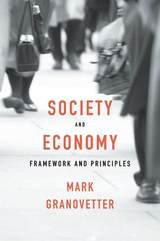
Society and Economy—a work of exceptional ambition by the founder of modern economic sociology—is the first full account of Mark Granovetter’s ideas about the diverse ways in which society and economy are intertwined.
The economy is not a sphere separate from other human activities, Granovetter writes. It is deeply embedded in social relations and subject to the same emotions, ideas, and constraints as religion, science, politics, or law. While some actions can be understood in traditional economic terms as people working rationally toward well-defined ends, much human behavior is harder to fit into that simple framework. Actors sometimes follow social norms with a passionate faith in their appropriateness, and at other times they conform without conscious thought. They also trust others when there is no obvious reason to do so. The power individuals wield over one another can have a major impact on economic outcomes, even when that power arises from noneconomic sources.
Although people depend on social norms, culture, trust, and power to solve problems, the guidance these offer is often murky and complicated. Granovetter explores how problem solvers improvise to assemble pragmatic solutions from this multitude of principles. He draws throughout on arguments from psychology, social network studies, and long-term historical and political analysis and suggests ways to maneuver back and forth among these approaches. Underlying Granovetter’s arguments is an attempt to move beyond such simple dualisms as agency/structure to a more complex and subtle appreciation of the nuances and dynamics that drive social and economic life.
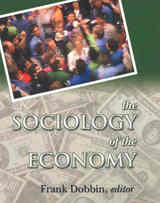

Questioning the boundaries between politics and economics
Jean-Louis Laville’s large body of work has focused on an intellectual history of the concept of solidarity since the Industrial Revolution. In The Solidarity Economy, his most famous distillation of this work, Laville establishes how the formations of economic solidarities (unions, activism, and other forms of associationalism) reveal that the boundaries between politics and economics are porous and structured such that politics, ideally a pure expression of ethics and values, is instead integrated with economic concerns.
Exploring the possibilities and long histories of association, The Solidarity Economy identifies the power of contemporary social and solidarity movements and examines the history of postcapitalist practices in which democratic demands invade the heart of the economy. The Solidarity Economy ranges in focus from workers associations in France dating back to the nineteenth century, to associations of African Americans and feminists in the United States in the late nineteenth and early twentieth centuries, to a Brazilian landless-worker coalition in the twentieth century.
Studying solidarity associations over time allows us to examine how we can recombine the economic and political spheres to address dependencies and inequalities. Ultimately, The Solidarity Economy has global scope and inspiring examples of associations that deepen democracy.

Popular conceptions hold that capitalism is driven almost entirely by the pursuit of profit and self-interest. Challenging that assumption, this major new study of American business associations shows how market and non-market relations are actually profoundly entwined at the heart of capitalism.
In Solidarity in Strategy, Lyn Spillman draws on rich documentary archives and a comprehensive data set of more than four thousand trade associations from diverse and obscure corners of commercial life to reveal a busy and often surprising arena of American economic activity. From the Intelligent Transportation Society to the American Gem Trade Association, Spillman explains how business associations are more collegial than cutthroat, and how they make capitalist action meaningful not only by developing shared ideas about collective interests but also by articulating a disinterested solidarity that transcends those interests.
Deeply grounded in both economic and cultural sociology, Solidarity in Strategy provides rich, lively, and often surprising insights into the world of business, and leads us to question some of our most fundamental assumptions about economic life and how cultural context influences economic.

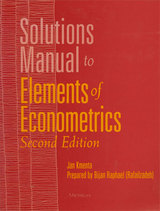
The Solutions Manual to Elements of Econometrics, Second Edition provides chapter solutions to the exercises in the college textbook: Elements of Econometrics, Second Edition by Jan Kmenta.

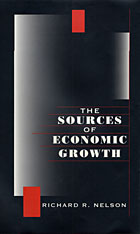
Technological advance is the key driving force behind economic growth, argues Richard Nelson. Investments in physical and human capital contribute to growth largely as handmaidens to technological advance. Technological advance needs to be understood as an evolutionary process, depending much more on ex post selection and learning than on ex ante calculation. That is why it proceeds much more rapidly under conditions of competition than under monopoly or oligopoly.
Nelson also argues that an adequate theory of economic growth must incorporate institutional change explicitly. Drawing on a deep knowledge of economic and technological history as well as the tools of economic analysis, Nelson exposes the intimate connections among government policies, science-based universities, and the growth of technology. He compares national innovation systems, and explores both the rise of the United States as the world’s premier technological power during the first two-thirds of the twentieth century and the diminishing of that lead as other countries have largely caught up.
Lucid, wide-ranging, and accessible, the book examines the secrets of economic growth and why the U.S. economy has been anemic since the early 1970s.

This book gives a practical, applications-oriented account of the latest techniques for estimating and analyzing large, nonlinear macroeconomic models. Ray Fair demonstrates the application of these techniques in a detailed presentation of several actual models, including his United States model, his multicountry model, Sargent's classical macroeconomic model, autoregressive and vector autoregressive models, and a small (twelve equation) linear structural model. He devotes a good deal of attention to the difficult and often neglected problem of moving from theoretical to econometric models. In addition, he provides an extensive discussion of optimal control techniques and methods for estimating and analyzing rational expectations models.
A computer program that handles all the techniques in the book is available from the author, making it possible to use the techniques with little additional programming. The book presents the logic of this program. A smaller program for personal microcomputers for analysis of Fair's United States model is available from Urban Systems Research & Engineering, Inc. Anyone wanting to learn how to use large macroeconomic models, including researchers, graduate students, economic forecasters, and people in business and government both in the United States and abroad, will find this an essential guidebook.

Through exemplary works of film, literature, the visual arts, testimonials, and cultural theory, Fornazzari reveals the influence of economics over nearly every aspect of culture and society. Citing Karl Marx, Michel Foucault, Walter Benjamin, Willy Thayer, Milton Friedman, and others, Fornazzari forms the theoretical basis for his neoliberal transitional discourse as a logical progression of capitalism.
Fornazzari identifies Casa de campo, José Donoso’s allegory of the military coup of 1973 and the ensuing monetary crisis, as a harbinger of transitional texts, challenging them to explore new forms of abstraction. Those forms are explored in the novels Oir su voz by Arturo Fontaine and Mano de obra by Diamela Eltit, where Fornazzari examines divergent views of workers in the form of neoliberal human capital or post-Fordist immaterial labor. In documentaries by Patricio Guzmán and Silvio Caiozzi, he juxtaposes depictions of mass mobilization and protest to the mass marketing of individual memory and loss, claiming they serve as symbols of the polarities of dictatorship and neoliberalism. Fornazzari then relates the subsuming of the individual under both fascism and neoliberalism by recalling the iconic imbunche (a mutilated figure whose orifices have been sewn closed) in works by Donoso and the visual artist Catalina Parra. He continues the theme of subsumption in his discussion of the obliteration of the divide between physical labor and intellectualism under neoliberalism, as evidenced in the detective novel A la sombra del dinero by Ramón Díaz Eterovic.
In these examples and others, Fornazzari presents a firmly grounded theoretical analysis that will appeal to Latin Americanists in general and to those interested in the intersection of economics and culture. The Chilean experience provides a case study that will also inform students and scholars of neoliberal transitions globally.

Speculum Iuris examines the complex relationship between law and social practice from the particular angle of Roman legislation and jurisprudence as conditioned by or reacting to a specific social, economic, and political context. Using various strategies, the editors and contributors mine a huge body of texts to study attitudes and behaviors of the Roman upper class, whose social concerns are reflected in the development of legal rules.
A close reading of juristic opinions and Republican or imperial legislation allows the contributors to find rationales behind rules and decisions in order to explain practices and mentalities of the elite within a larger social context. This book demonstrates clearly that Roman law was not divorced from the realities of daily life, even if some jurists may have been working with purely hypothetical cases.
Speculum Iuris provides a multidisciplinary approach to the question of the interplay of legal and social forces in the Roman world. As such, it will be a helpful study for general classicists and ancient historians, as well as for legal historians, social historians, economic historians, sociologists, and cultural anthropologists.
Jean-Jacques Aubert is Professor of Latin Language and Literature, University of Neuchâtel, Switzerland. Boudewijn Sirks is Professor of the History of Ancient Law, the History of European Private Law, and German Civil Law, Institute for the History of Law, Germany.
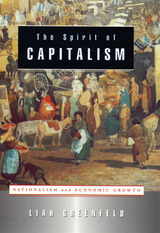
The Spirit of Capitalism answers a fundamental question of economics, a question neither economists nor economic historians have been able to answer: what are the reasons (rather than just the conditions) for sustained economic growth? Taking her title from Max Weber's famous study on the same subject, Liah Greenfeld focuses on the problem of motivation behind the epochal change in behavior, which from the sixteenth century on has reoriented one economy after another from subsistence to profit, transforming the nature of economic activity. A detailed analysis of the development of economic consciousness in England, the Netherlands, France, Germany, Japan, and the United States allows her to argue that the motivation, or "spirit," behind the modern, growth-oriented economy was not the liberation of the "rational economic actor," but rather nationalism. Nationalism committed masses of people to an endless race for national prestige and thus brought into being the phenomenon of economic competitiveness.
Nowhere has economic activity been further removed from the rational calculation of costs than in the United States, where the economy has come to be perceived as the end-all of political life and the determinant of all social progress. American "economic civilization" spurs the nation on to ever-greater economic achievement. But it turns Americans into workaholics, unsure of the purpose of their pursuits, and leads American statesmen to exaggerate the weight of economic concerns in foreign policy, often to the detriment of American political influence and the confusion of the rest of the world.

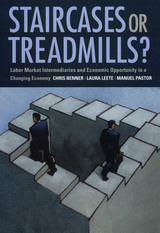
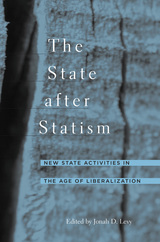
This book assesses the changing nature of state intervention in the economies of the affluent democracies. Against a widespread understanding that contemporary developments, such as globalization and new technologies, are pressing for a rollback of state regulation in the economy, the book shows that these same forces are also creating new demands and opportunities for state intervention. Thus, state activism has shifted, rather than simply eroded.
State authorities have shifted from a market-steering orientation to a market-supporting one. Chief among the new state missions are: repairing the main varieties of capitalism (liberal, corporatist, and statist); making labor markets and systems of social protection more employment-friendly; recasting regulatory frameworks to permit countries to cross major economic and technological divides; and expanding market competition at home and abroad.
Because the changes from market steering to market support are so controversial and far-reaching, state officials often find themselves making choices that produce clear winners and losers. Such choices require a capacity to act unilaterally and decisively, even in the face of substantial societal opposition. As a result, state activism, autonomy, and occasionally imposition remain essential for meeting the challenges of today's globalizing economy.



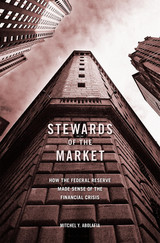
A fast-paced, behind-closed-doors account of the Federal Reserve’s decision making during the 2008 financial crisis, showing how Fed policymakers overcame their own assumptions to contain the disaster.
The financial crisis of 2008 led to the collapse of several major banks and thrust the US economy into the deepest recession since the Great Depression. The Federal Reserve was the agency most responsible for maintaining the nation’s economic stability. And the Fed’s Open Market Committee was a twelve-member body at the epicenter, making sense of the unfolding crisis and fashioning a response. This is the story of how they failed, learned, and staved off catastrophe.
Drawing on verbatim transcripts of the committee’s closed-door meetings, Mitchel Abolafia puts readers in the room with the Federal Reserve’s senior policymaking group. Abolafia uncovers what the Fed’s policymakers knew before, during, and after the collapse. He explores how their biases and intellectual commitments both helped and hindered as they made sense of the emergency. In an original contribution to the sociology of finance, Stewards of the Market examines the social and cultural factors that shaped the Fed’s response, one marked by missed cues and analytic failures but also by successful improvisations and innovations.
Ideas, traditions, and power all played their roles in the Fed’s handling of the crisis. In particular, Abolafia demonstrates that the Fed’s adherence to conflicting theories of self-correcting markets contributed to the committee’s doubts and decisions. A vivid portrait of the world’s most powerful central bank in a moment of high stakes, Stewards of the Market is rich with insights for the next financial downturn.
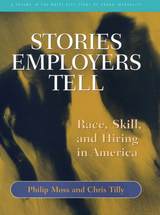

Multinational enterprises—what they are and the challenge they pose to national objectives—have never been so clearly delineated. Raymond Vernon cuts through polemic and propaganda to place in perspective the spread of large companies from their home bases to foreign countries. He draws upon the variety of recent studies and his own vast scholarly endeavors and firsthand experience to answer such questions as: Are multinational enterprises and nation-states incompatible in goals and outlook? Should their economic (and political) behavior differ in underdeveloped countries as compared to modernized states?
After reviewing the growing interrelationships of the world's economies, Vernon takes a close-up look at multinationals, commenting on their size, business activity, and patterns of management and control. He identifies the real problems these large enterprises generate, sorting them out from the ills that are associated with industrialization in general. He traces these problems in the developing world and in industrialized countries. In the process, he explores the ramifications of the multinational double identity—each enterprise must comport itself as a national of the country that sanctioned its creation, while at the same time it must respond to the link that ties it to units of the same company in other countries.
Finally, Vernon reviews proposals that have been made to alter the relationship between the enterprises and their host countries, and he suggests scenarios for the future. The issues run deep and the threat of conflict grows, he asserts, and if policymakers hope to deal constructively with problems associated with multinational enterprises, they will have to recognize some of the basic difficulties that have so far blocked progress. His book, by setting forth the issues clearly and without special pleading, makes significant progress in pointing the way to solutions.

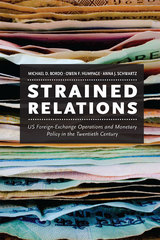

With many countries now using—or seriously contemplating—monetary arrangements similar to Argentina's, this important and persuasive study maps out one of history's most interesting monetary experiments to show what works and what doesn't.

By the mid-1980s, Korea's economic and political situation was becoming volatile. Labor relations were especially contentious. The Strains of Economic Growth, a collaborative research project between the Harvard Institute for International Development and the Korea Development Institute provides an analytic history of the economic causes of the labor unrest and popular discontent of the late 1980s. Set against rapid increases in wages and employment, worker dissatisfaction is traced to patterns of income inequality and to non-pecuniary dimensions of working life, including the suppression of labor organizations. The desire for greater political freedom also played an important role in the unprecedented unrest of this period.
The conclusions of this volume are essential for understanding the labor struggles that continue in Korea today and are highly relevant for policy makers from other emerging economies that wish to benefit from both the successes and failures of Korea's experience.
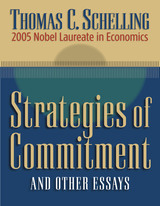
All of the essays in this new collection by Thomas Schelling convey his unique perspective on individuals and society. This perspective has several characteristics: it is strategic in that it assumes that an important part of people's behavior is motivated by the thought of influencing other people's expectations; it views the mind as being separable into two or more parts (rational/irrational; present-minded/future-minded); it is motivated by policy concerns--smoking and other addictions, global warming, segregation, nuclear war; and while it accepts many of the basic assumptions of economics--that people are forward-looking, rational decision makers, that resources are scarce, and that incentives are important--it is open to modifying them when appropriate, and open to the findings and insights of other social science disciplines.
Schelling--a 2005 Nobel Prize winner-- has been one of the four or five most important social scientists of the past fifty years, and this collection shows why.

Adam Smith, asserting the common humanity of the street porter and the philosopher, articulated the classical economists' model of social interactions as exchanges among equals. This model had largely fallen out of favor until, recently, a number of scholars in the avant-garde of economic thought rediscovered it and rechristened it "analytical egalitarianism." In this volume, Sandra J. Peart and David M. Levy bring together an impressive array of authors to explore the ramifications of this analytical ideal and to discuss the ways in which an egalitarian theory of individuality can enable economists to reconcile ideas from opposite ends of the political spectrum.
"The analytical egalitarianism project that Peart and Levy have advanced has come to occupy a prominent place in the current agenda of historians of economic thought."
---Ross Emmett, Associate Professor of Economics and Co-Director of the Michigan Center for Innovation and Economic Prosperity, Michigan State University
"These essays and dialogs from the Summer Institute would make Adam Smith, economist and moral philosopher, proud."
---J. Daniel Hammond, Hultquist Family Professor of Economics, Wake Forest University
With essays by:
- James M. Buchanan, Alfred Nobel Memorial Prize in Economic Sciences recipient (1985) and Professor Emeritus, George Mason University and Virginia Polytechnic and State University
- Juan Pablo Couyoumdijian, Universidad del Desearrollo, Chile
- Tyler Cowen, George Mason University
- Eric Crampton, University of Canterbury, New Zealand
- Andrew Farrant, Dickinson College
- Samuel Hollander, Professor Emeritus, University of Toronto
- M. Ali Khan, Johns Hopkins University
- Thomas Leonard, Princeton University
- Deirdre McCloskey, University of Illinois, Chicago
- Leonidas Montes, Dean of School of Government, Universidad Adolfo Ibañez, Chile
- Maria Pia Paganelli, Yeshiva University and New York University
- Warren J. Samuels, Professor Emeritus, Michigan State University
- Eric Schliesser, VENI post-doctoral research fellow, Leiden University, and University of Amsterdam
- Gordon Tullock, George Mason University
Sandra J. Peart is Dean of the Jepson School of Leadership Studies, University of Richmond, Virginia.
David M. Levy is Professor of Economics at George Mason University (GMU) and Research Associate at the Center for Study of Public Choice at GMU.
They are Co-Directors of George Mason University's Summer Institute for the Preservation of the History of Economics.
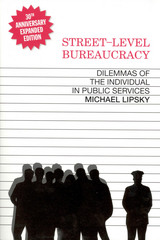
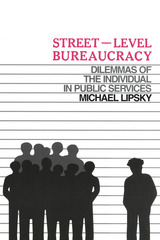

Many consumers feel powerless in the face of big industry’s interests. And the dominant view of economic regulators (influenced by Mancur Olson’s book The Logic of Collective Action, published in 1965) agrees with them. According to this view, diffuse interests like those of consumers are too difficult to organize and too weak to influence public policy, which is determined by the concentrated interests of industrial-strength players. Gunnar Trumbull makes the case that this view represents a misreading of both the historical record and the core logic of interest representation. Weak interests, he reveals, quite often emerge the victors in policy battles.
Based on a cross-national set of empirical case studies focused on the consumer, retail, credit, pharmaceutical, and agricultural sectors, Strength in Numbers develops an alternative model of interest representation. The central challenge in influencing public policy, Trumbull argues, is not organization but legitimation. How do diffuse consumer groups convince legislators that their aims are more legitimate than industry’s? By forging unlikely alliances among the main actors in the process: activists, industry, and regulators. Trumbull explains how these “legitimacy coalitions” form around narratives that tie their agenda to a broader public interest, such as expanded access to goods or protection against harm. Successful legitimizing tactics explain why industry has been less powerful than is commonly thought in shaping agricultural policy in Europe and pharmaceutical policy in the United States. In both instances, weak interests carried the day.

Studies on the economics of technological change have only recently become prevalent; nevertheless, the literature is already proliferating at a rate that makes assimilation difficult for the individual scholar. Anne Carter's volume brings to the vast material on production analysis, growth, and economic development the perspective and insights gained through the examination of intermediate inputs and the explanation of structural change in input-output coefficients.
“The present study,” writes the author, “is rooted in the premise that an explicit analysis of changing intermediate input requirements adds more to insight than it does to confusion—particularly in the understanding of technological change... Many practical problems of business and government require an understanding of how, and at what rate, use of plastics or truck transportation or producers' services is changing. Indeed, it is difficult to conceive of studying some central aspects of technical change—such as invention or diffusion of new techniques—without introducing specific intermediate inputs... These are an essential part of the picture. They turn up as variables in questions and answers about our economic system that cannot be discussed at a highly aggregate level. Most important, they are indispensable in bridging the gap between engineering and technical information, on the one hand, and economic description, on the other.”
This work assembles comparable input-output tables for 1939, 1947, and 1958 along with auxiliary information on labor, capital, and final demand for 1939, 1947, 1958, and 1961—data that have not in the past been readily accessible to most students and business analysts. Graphic forms of presentation liberally supplement the basic tables. The study shows how technological change has affected industrial specialization, as well as direct primary inputs, and how these components of change are interrelated. The overall proportion of intermediate to final production saw little change, but systematic shifts appeared in the relative contributions of individual industries. Most structural change resulted from the assimilation of new techniques rather than from classical substitution and, in general, direct laborsaving was large relative to changes in capitol and intermediate requirements.
Carter's study is the first to pursue the question of structural stability and structural change for the United States in detailed, comprehensive, quantitative terms, tying concrete developments in technology to the broader economic picture.


In this, the first book-length academic treatment of this important issue, a team of notable contributors present nine papers, offering a comprehensive assessment of those economic difficulties and addressing a range of specific issues, from financial restructuring and the impact of the aging Japanese population to corporate behavior, public lending, employment practices, and innovative capacity. In each paper, contributors clearly identify and outline problems and concerns, carefully pose provocative questions, and in many instances present concrete suggestions for improvement.
The resulting volume is a timely and important examination of critical issues for Japan's stalling economy, packed with both telling data and expert analysis and offering valuable perspectives on Japan's current obstacles.

Dissatisfied with the explanations of the business cycle provided by the Keynesian, monetarist, New Keynesian, and real business cycle schools, Edmund Phelps has developed from various existing strands—some modern and some classical—a radically different theory to account for the long periods of unemployment that have dogged the economies of the United States and Western Europe since the early 1970s. Phelps sees secular shifts and long swings of the unemployment rate as structural in nature. That is, they are typically the result of movements in the natural rate of unemployment (to which the equilibrium path is always tending) rather than of long-persisting deviations around a natural rate itself impervious to changing structure. What has been lacking is a “structuralist” theory of how the natural rate is disturbed by real demand and supply shocks, foreign and domestic, and the adjustments they set in motion.
To study the determination of the natural rate path, Phelps constructs three stylized general equilibrium models, each one built around a distinct kind of asset in which firms invest and which is important for the hiring decision. An element of these models is the modern economics of the labor market whereby firms, in seeking to dampen their employees’ propensities to quit and shirk, drive wages above market-clearing levels-the phenomenon of the “incentive wage”—and so generate involuntary unemployment in labor-market equilibrium. Another element is the capital market, where interest rates are disturbed by demand and supply shocks such as shifts in profitability, thrift, productivity, and the rate of technical progress and population increase. A general-equilibrium analysis shows how various real shocks, operating through interest rates upon the demand for employees and through the propensity to quit and shirk upon the incentive wage, act upon the natural rate (and thus equilibrium path).
In an econometric and historical section, the new theory of economic activity is submitted to certain empirical tests against global postwar data. In the final section the author draws from the theory some suggestions for government policy measures that would best serve to combat structural slumps.



In 1965, a group of economists at Harvard University established the Project for Quantitative Research in Economic Development in the Center for International Affairs. Brought together by a common background of fieldwork in developing countries and a desire to apply modern techniques of quantitative analysis to the policy problems of these countries, they produced this volume, which represents that part of their research devoted to formulating operational ways of thinking about development problems.
The seventeen essays are organized into four sections: General Planning Models, International Trade and External Resources, Sectoral Planning, and Empirical Bases for Development Programs. They raise some central questions: To what extent can capital and labor substitute for each other? Does development require fixed inputs of engineers and other specialists in each sector or are skills highly substitutable? Is the trade gap a structural phenomenon or merely evidence of an overvalued exchange rate? To what extent do consumers respond to changes in relative prices?

The contributors examine the effects of taxation on decisions about international financial management, business investment, and international income shifting. They consider the influence of tax rules on dividend policy decisions within multinationals; the extent to which tax incentives affect the level and location of research and development across countries; and the fact that foreign-controlled companies operating in the United States pay lower taxes than do domestically controlled companies.
The contributors to this volume are Rosanne Altshuler, Alan J. Auerbach, Neil Bruce, Timothy Goodspeed, Roger H. Gordon, Harry Grubert, Bronwyn H. Hall, David Harris, Kevin Hassett, James R. Hines Jr., Roy D. Hogg, Joosung Jun, Jeffrey K. Mackie-Mason, Jack M. Mintz, Randall Morck, John Mutti, T. Scott Newlon, James M. Poterba, Joel Slemrod, Deborah Swenson, G. Peter Wilson, and Bernard Yeung.


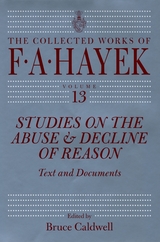
Hayek argues that the vast number of elements whose interactions create social structures and institutions make it unlikely that social science can predict precise outcomes. Instead, he contends, we should strive to simply understand the principles by which phenomena are produced. For Hayek this modesty of aspirations went hand in hand with his concern over widespread enthusiasm for economic planning. As a result, these essays are relevant to ongoing debates within the social sciences and to discussion about the role government can and should play in the economy.


Supply-side economics, emphasizing tax cuts over government spending, has been much maligned and little understood. It first leaped to national attention during the budget policy debates of 1977–78, when the new ideas captured the imagination of Congress and challenged conventional Keynesian models. After Ronald Reagan was elected, the fight was on in 1981 for what was called “the largest tax cut in history.” A year later, the same administration presided over the “largest tax increase in history.” Nine months after that, President Reagan reemerged as a supply-side leader.
This book tells what happened, and how. It is the story of a revolution in economic theory from its origin in Congressman Jack Kemp's office in the summer of 1975 through the first thirty months of the Reagan Administration. It details the struggles of key figures such as Donald Regan, James Baker, David Stockman, and Alice Rivlin.
It is also the first presentation by a professional economist of the hard case for supply-side economics. Paul Craig Roberts played a major role in managing the issue of supply-side economics both in the congressional staff and the executive branch. He has written an astonishingly candid study of the policy process—how individual ego tends to prevail over common cause, how power plays by politicians are more likely to determine policy than is the ideology of an administration, how skill at manipulating the media prevails over solid economic data. It is a stunning analysis, and a sobering one, from an expert supply-sider who continues to believe that history is on his side, and that supply-side thinking must prevail in a healthy, democratic society.



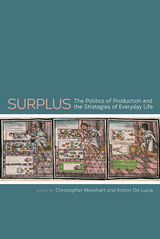
The concept of surplus captures the politics of production and also conveys the active material means by which people develop the strategies to navigate everyday life. Surplus: The Politics of Production and the Strategies of Everyday Life examines how surpluses affected ancient economies, governments, and households in civilizations across Mesoamerica, the Southwest United States, the Andes, Northern Europe, West Africa, Mesopotamia, and eastern Asia.
A hallmark of archaeological research on sociopolitical complexity, surplus is central to theories of political inequality and institutional finance. This book investigates surplus as a macro-scalar process on which states or other complex political formations depend and considers how past people—differentially positioned based on age, class, gender, ethnicity, role, and goal—produced, modified, and mobilized their social and physical worlds.
Placing the concept of surplus at the forefront of archaeological discussions on production, consumption, power, strategy, and change, this volume reaches beyond conventional ways of thinking about top-down or bottom-up models and offers a comparative framework to examine surplus, generating new questions and methodologies to elucidate the social and political economies of the past.
Contributors include Douglas J. Bolender, James A. Brown, Cathy L. Costin, Kristin De Lucia, Timothy Earle, John E. Kelly, Heather M. L. Miller, Christopher R. Moore, Christopher T. Morehart, Neil L. Norman, Ann B. Stahl, Victor D. Thompson, T. L. Thurston, and E. Christian Wells.
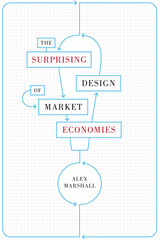
The “free market” has been a hot topic of debate for decades. Proponents tout it as a cure-all for just about everything that ails modern society, while opponents blame it for the very same ills. But the heated rhetoric obscures one very important, indeed fundamental, fact—markets don’t just run themselves; we create them.
Starting from this surprisingly simple, yet often ignored or misunderstood fact, Alex Marshall takes us on a fascinating tour of the fundamentals that shape markets and, through them, our daily economic lives. He debunks the myth of the “free market,” showing how markets could not exist without governments to create the structures through which we assert ownership of property, real and intellectual, and conduct business of all kinds. Marshall also takes a wide-ranging look at many other structures that make markets possible, including physical infrastructure ranging from roads and railroads to water systems and power lines; mental and cultural structures such as common languages and bodies of knowledge; and the international structures that allow goods, services, cash, bytes, and bits to flow freely around the globe.
Sure to stimulate a lively public conversation about the design of markets, this broadly accessible overview of how a market economy is constructed will help us create markets that are fairer, more prosperous, more creative, and more beautiful.

Meeropol provides compelling evidence of the failure of the U.S. economy between 1990 and 1994 to generate rising incomes for most of the population or improvements in productivity. This caused, first, the electoral repudiation of President Bush in 1992, followed by a repudiation of President Clinton in the 1994 Congressional elections. The Clinton administration made a half-hearted attempt to reverse the Reagan Revolution in economic policy, but ultimately surrendered to the Republican Congressional majority in 1996 when Clinton promised to balance the budget by 2000 and signed the welfare reform bill. The rapid growth of the economy in 1997 caused surprisingly high government revenues, a dramatic fall in the federal budget deficit, and a brief euphoria evident in an almost uncontrollable stock market boom. Finally, Meeropol argues powerfully that the next recession, certain to come before the end of 1999, will turn the predicted path to budget balance and millennial prosperity into a painful joke on the hubris of public policymakers.
Accessibly written as a work of recent history and public policy as much as economics, this book is intended for all Americans interested in issues of economic policy, especially the budget deficit and the Clinton versus Congress debates. No specialized training in economics is needed.
"A wonderfully accessible discussion of contemporary American economic policy. Meeropol demonstrates that the Reagan-era policies of tax cuts and shredded safety nets, coupled with strident talk of balanced budgets, have been continued and even brought to fruition by the neo-liberal Clinton regime." --Frances Fox Piven, Graduate School, City University of New York
Michael Meeropol is Chair and Professor of Economics, Western New England College.
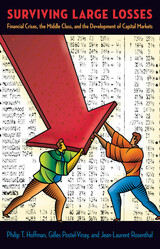
Listen to a short interview with Philip T. HoffmanHost: Chris Gondek | Producer: Heron & Crane
Financial disasters often have long-range institutional consequences. When financial institutions--banks, insurance companies, brokerage firms, stock exchanges--collapse, new ones take their place, and these changes shape markets for decades or even generations. Surviving Large Losses explains why such financial crises occur, why their effects last so long, and what political and economic conditions can help countries both rich and poor survive--and even prosper--in the aftermath.Looking at past and more recent financial disasters through the lens of political economy, the authors identify three factors critical to the development of financial institutions: the level of government debt, the size of the middle class, and the quality of information that is available to participants in financial transactions. They seek to find out when these factors promote financial development and mitigate the effects of financial crises and when they exacerbate them.Although there is no panacea for crises--no one set of institutions that will resolve them--it is possible, the authors argue, to strengthen existing financial institutions, to encourage economic growth, and to limit the harm that future catastrophes can do.

Human-generated greenhouse gas emissions imperil a global resource: a biosphere capable of supporting life as we know it. What is the fair way to share this scarce resource across present and future generations, and across regions of the world? This study offers a new perspective based on the guiding ethics of sustainability and egalitarianism.
Sustainability is understood as a pattern of economic activity over time that sustains a given rate of growth of human welfare indefinitely. To achieve this, the atmospheric concentration of carbon must be capped at some level not much higher than exists today, and investments in education and research should be higher than they currently are. International cooperation between developing and developed nations is also vital, because economic growth and the climate problem are intertwined.
The authors propose that the guiding principle of bargaining should be that the dates at which developing countries’ living standards catch up with those of developed countries should not be altered by the agreement. They conclude that developed economies would have to agree not to exceed 1 percent growth in per capita GDP annually, while developing nations should grow at a faster rate, but still lower than current projections, until they converge. The authors acknowledge that achieving such a dramatic slowdown would carry political and economic challenges.
READERS
Browse our collection.
PUBLISHERS
See BiblioVault's publisher services.
STUDENT SERVICES
Files for college accessibility offices.
UChicago Accessibility Resources
home | accessibility | search | about | contact us
BiblioVault ® 2001 - 2024
The University of Chicago Press









